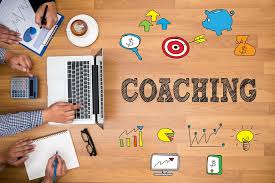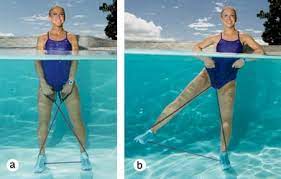Coaching: A Powerful Tool for Personal and Professional Growth
Coaching is a powerful tool that can help individuals and organizations achieve their goals, overcome obstacles, and reach their full potential. Whether you are looking to improve your leadership skills, develop your career, or enhance your personal well-being, coaching can provide the guidance and support you need to succeed.
At its core, coaching is about helping individuals identify their strengths, weaknesses, and opportunities for growth. Through a process of self-reflection and exploration, coaches work with clients to develop strategies for achieving their goals and overcoming challenges. This can involve setting specific objectives, identifying potential obstacles, and developing action plans to move forward.
One of the key benefits of coaching is that it provides a safe and supportive environment for individuals to explore their thoughts and feelings. Coaches are trained to listen actively, ask powerful questions, and provide constructive feedback that can help clients gain new insights into themselves and their situation.
Coaching can be particularly effective for individuals who are facing complex or difficult challenges in their personal or professional lives. For example, if you are struggling with stress or burnout at work, a coach can help you develop strategies for managing your workload more effectively or improving your work-life balance. Similarly, if you are looking to advance your career but feel stuck in your current role, a coach can provide guidance on how to acquire new skills or take advantage of new opportunities.
Another benefit of coaching is that it can help individuals develop greater self-awareness. By reflecting on their own thoughts and behaviors with the guidance of a coach, clients can gain deeper insights into what motivates them, what holds them back from reaching their full potential, and how they can overcome these obstacles.
Ultimately, coaching is about empowering individuals to take control of their own lives and make positive changes that will enable them to achieve their goals. Whether you are looking to improve your leadership skills or enhance your personal well-being, coaching can provide the guidance and support you need to succeed.
Answers to Common Questions About Coaching: A Guide for Beginners
- What is the difference between coaching and counseling?
- How do I know if I need a coach?
- How much does coaching cost?
- What qualifications should I look for in a coach?
- How long does it take to see results from coaching?
- What type of coaching is right for me?
What is the difference between coaching and counseling?
Coaching and counseling are both forms of support that can help individuals overcome challenges and achieve their goals. However, there are some key differences between the two.
Coaching is typically focused on helping individuals set and achieve specific goals related to their personal or professional development. Coaches work with clients to identify their strengths, weaknesses, and opportunities for growth, and then develop strategies for achieving their objectives. Coaching is often forward-looking and action-oriented, with a focus on helping clients make progress towards their goals.
Counseling, on the other hand, is typically focused on helping individuals address emotional or psychological issues that may be impacting their well-being. Counselors work with clients to explore their thoughts, feelings, and behaviors in order to gain insight into the root causes of these issues. Counseling may involve exploring past experiences or traumas in order to help individuals heal from emotional pain or trauma.
Another difference between coaching and counseling is the level of training required for practitioners. While coaches may have specialized training in coaching techniques and methodologies, they are not typically required to have a degree in psychology or counseling. Counselors, on the other hand, typically have a master’s degree or higher in psychology or counseling.
In summary, coaching is focused on helping individuals achieve specific goals related to personal or professional development through forward-looking strategies and action-oriented support. Counseling is focused on addressing emotional or psychological issues through exploration of thoughts, feelings, and behaviors with a focus on healing from past traumas.
How do I know if I need a coach?
If you are wondering whether you need a coach, it’s likely that you are facing some challenges or obstacles in your personal or professional life that you are struggling to overcome on your own. Here are some signs that may indicate that coaching could be beneficial for you:
- You feel stuck or unfulfilled in your current situation: If you feel like you’re not making progress towards your goals, or if you’re feeling unmotivated and unfulfilled in your personal or professional life, a coach can help you identify the root causes of these feelings and develop strategies to move forward.
- You are facing a major transition: Whether it’s starting a new job, moving to a new city, or going through a major life change like divorce or the loss of a loved one, coaching can provide the support and guidance you need to navigate these transitions successfully.
- You want to improve your skills or performance: If you’re looking to enhance your leadership skills, develop better communication skills, or improve your performance at work, coaching can provide personalized guidance and feedback to help you achieve your goals.
- You want to improve your well-being: Whether it’s reducing stress, improving sleep habits, or developing healthier habits overall, coaching can help you identify areas for improvement and develop strategies for achieving greater well-being.
- You want accountability and support: Sometimes we all need someone to hold us accountable and provide support as we work towards our goals. A coach can provide this level of support and encouragement while also helping us stay focused on what really matters.
Ultimately, the decision to work with a coach is a personal one that depends on your individual needs and goals. If any of the above signs resonate with you, it may be worth exploring coaching as an option for achieving greater success and fulfillment in your personal and professional life.
How much does coaching cost?
The cost of coaching can vary depending on a number of factors, including the coach’s experience and qualifications, the length and frequency of the coaching sessions, and the type of coaching being provided.
Generally speaking, coaches may charge anywhere from $50 to $500 or more per hour, with the average cost falling somewhere in the middle. Some coaches may offer packages or discounts for clients who commit to multiple sessions upfront.
It’s important to keep in mind that while coaching can be an investment, it’s also an investment in yourself and your future. The benefits of coaching can include improved self-awareness, increased confidence and resilience, enhanced communication and relationship skills, and greater clarity and focus on your goals.
Before committing to a coach or coaching program, it’s a good idea to do some research on different coaches in your area or online. Look for coaches who have experience working with individuals or organizations similar to yours, and read reviews or testimonials from past clients. Many coaches also offer free consultations or introductory sessions so you can get a sense of their style and approach before committing to ongoing coaching.
Ultimately, the cost of coaching should be weighed against the potential benefits it can provide in terms of personal growth, professional development, and overall well-being.
What qualifications should I look for in a coach?
When looking for a coach, it’s important to find someone who has the right qualifications and experience to help you achieve your goals. Here are some qualifications you should look for in a coach:
- Certification: Look for a coach who is certified by a reputable coaching organization such as the International Coach Federation (ICF). This means that they have completed rigorous training and adhere to ethical standards.
- Experience: Find a coach who has experience working with clients in your specific area of focus, whether that’s personal development, career advancement, or leadership development.
- Education: Look for a coach who has relevant education in fields such as psychology, counseling, or business. While not required, this can indicate that they have a deeper understanding of human behavior and motivation.
- Coaching style: Consider what coaching style works best for you. Some coaches use a directive approach while others take a more collaborative approach. Find someone whose coaching style aligns with your personality and goals.
- References: Ask for references from past clients to get an idea of their experience working with the coach and the results they achieved.
- Continuing education: A good coach should be committed to ongoing learning and professional development. Look for someone who regularly attends conferences or workshops and stays up-to-date on industry trends and best practices.
Remember that finding the right coach is not just about qualifications – it’s also about finding someone you feel comfortable working with and who understands your unique needs and goals. Take the time to research potential coaches, ask questions, and trust your instincts when making your decision.
How long does it take to see results from coaching?
The length of time it takes to see results from coaching can vary depending on a number of factors, including the goals of the coaching relationship, the frequency and duration of coaching sessions, and the level of commitment and effort put in by the client.
In general, clients can expect to see some initial progress within a few sessions. This may involve gaining new insights into their situation, developing greater self-awareness, or identifying specific actions they can take to move closer to their goals.
However, it’s important to keep in mind that lasting change often takes time and sustained effort. Clients who are committed to making meaningful changes in their lives may need to work with a coach over several months or even years in order to achieve their desired outcomes.
It’s also worth noting that the benefits of coaching can extend beyond just achieving specific goals. Many clients report feeling more confident, resilient, and empowered as a result of working with a coach. They may develop new skills or perspectives that enable them to navigate challenges more effectively and achieve greater success over the long term.
Ultimately, the timeline for seeing results from coaching will depend on a variety of factors unique to each individual. However, clients who are open-minded, committed to growth and willing to put in the effort are likely to see positive changes in their lives relatively quickly.
What type of coaching is right for me?
Determining what type of coaching is right for you depends on your specific goals, needs, and preferences. Here are some common types of coaching to consider:
- Personal Coaching: This type of coaching is focused on personal growth and development. It can help you overcome obstacles, improve your relationships, and achieve your goals in areas such as health, fitness, finances, or spirituality.
- Professional Coaching: Professional coaching is designed to help individuals advance their careers and improve their leadership skills. It can help you develop new skills, navigate challenging work situations, and achieve greater success in your career.
- Executive Coaching: This type of coaching is specifically designed for executives or senior leaders in organizations. It can help you develop strategic thinking skills, improve decision-making abilities, and enhance your overall leadership effectiveness.
- Team Coaching: Team coaching focuses on improving collaboration and communication among team members within an organization. It can help teams work more effectively together to achieve shared goals and objectives.
- Business Coaching: Business coaching is designed to help entrepreneurs or small business owners grow their businesses by improving their management skills, developing effective marketing strategies, or enhancing their financial management practices.
- Life Coaching: Life coaching focuses on helping individuals identify and achieve their personal goals in areas such as relationships, career development, health and wellness or personal fulfillment.
When choosing a coach or a coaching program that suits you best, it’s important to consider the coach’s qualifications and experience in the specific area of focus that you need assistance with. Additionally, consider whether the coach’s style resonates with you personally – do they seem approachable? Do they make you feel comfortable? Finally, it’s important to have an open mind about the process of coaching – be willing to try new things and embrace change as part of the journey towards achieving your goals.



